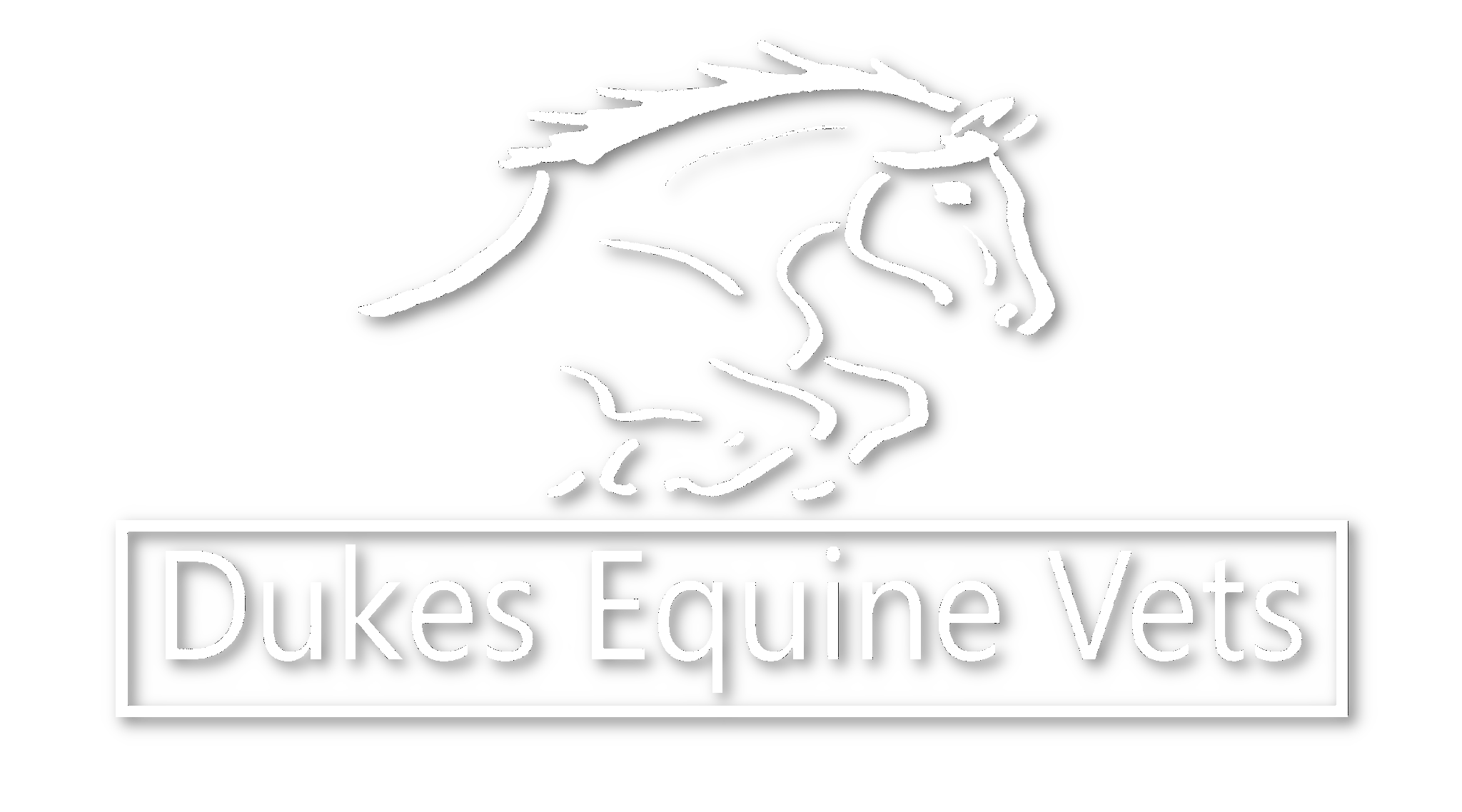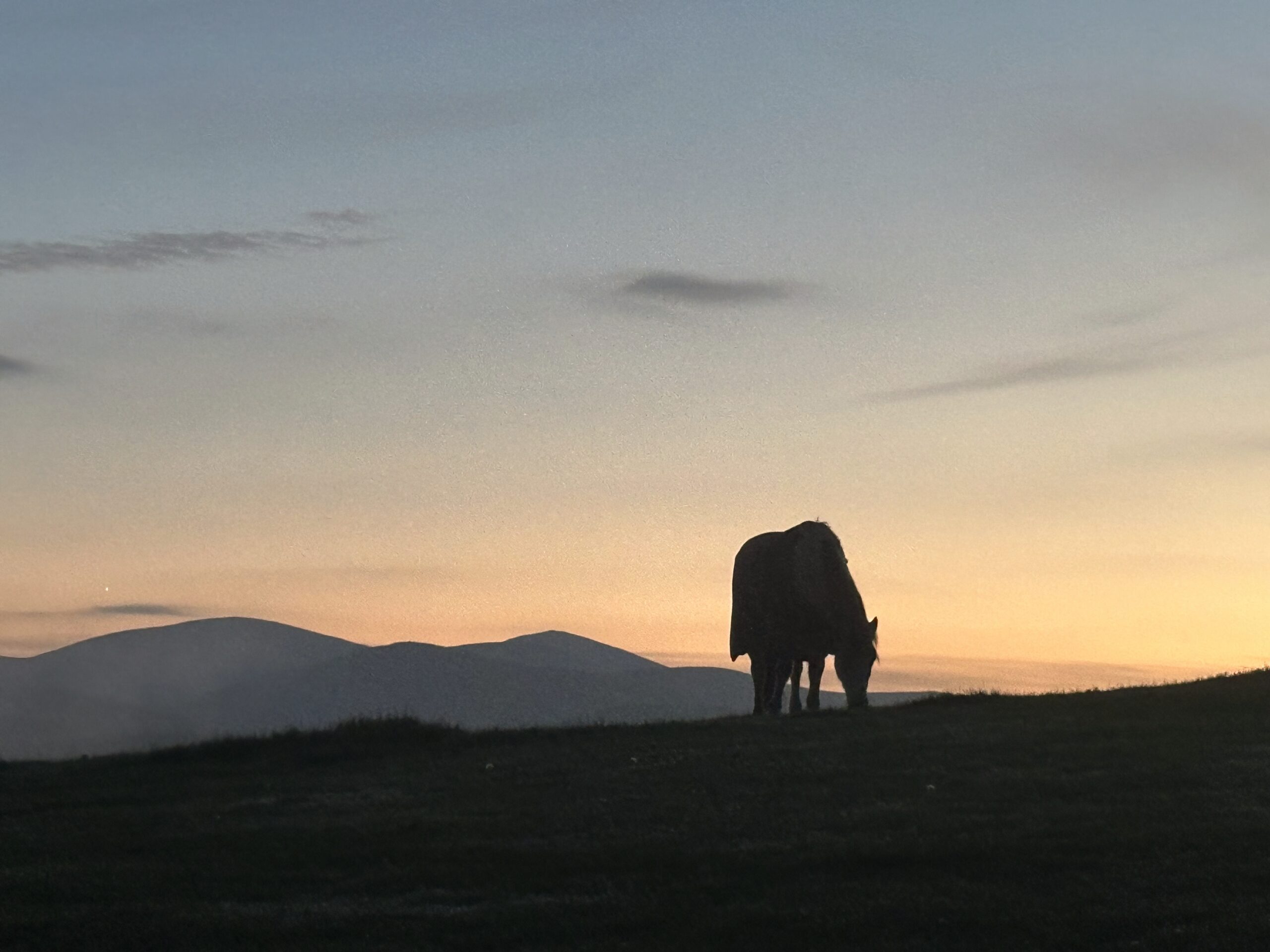
Advice and information
Dealing with an emergency
Its easy to get scared when a horse is sick or injured but there are a few simple rules to follow if you want to achieve the best outcome. It sounds harsh but you need to be as dispassionate as possible to tackle the situation most effectively.
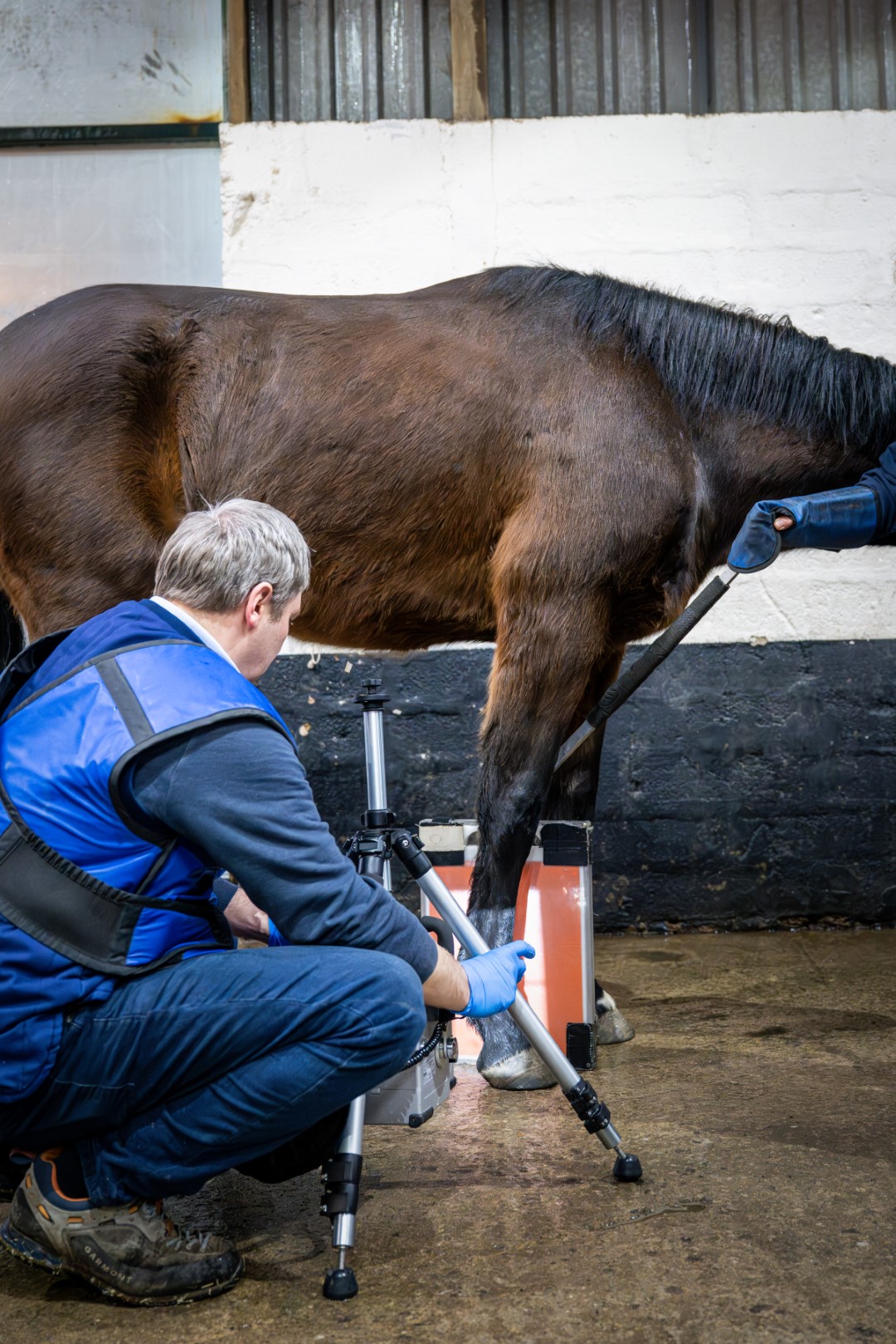
- Don’t panic. Sounds obvious but if you can take a deep breath and critically evaluate the situation you will be able to deal with it
- Do not to make the situation worse. Firstly you must assess the risks, ask yourself are people involved and in danger. Regardless of whatever has happened to your horse, the situation will be easier to deal with if you make sure everyone is safe first.
- If the injury or illness is obviously very serious call for help as soon as you can
- If the situation is something you are confident you can deal with, then prepare and plan before treating. Make sure you have all the first aid kit you require such as dressings, bandages, cleaning equipment etc
First aid
- Learn the basics of first aid and make sure you have a few simple materials to hand to manage minor bumps and scrapes
- Don’t rush to wash wounds. It’s what we are taught, but a clean cut, however large, may not be particularly contaminated. “Cleaning” with an old sponge and dirty bucket of water will not improve the situation.
- Disinfectant and soaps destroy healthy tissue so, unless the wound is really grossly contaminated, rinsing the wound with sterile saline is a much better option
- Let the wound heal. If you have a graze on your shin you do not scrub it with a brush every night to keep it clean, but people do this with horse wounds and then wonder why they don’t heal. Keep the wound clean and dry and let it heal.
- If you need to bandage a wound do it in the correct way. Reasonably firm but not too tight and with sufficient padding underneath to avoid any pressure points.
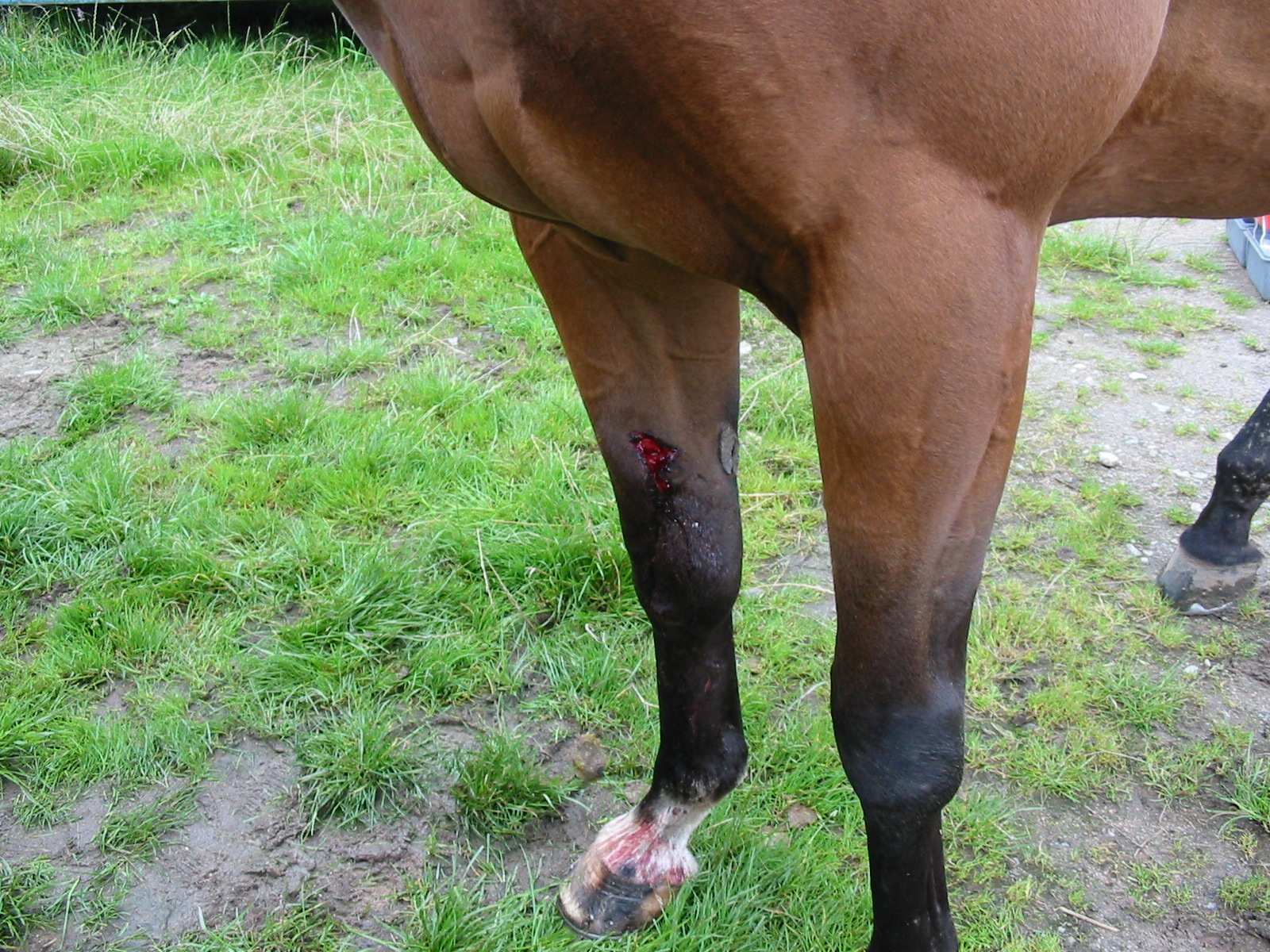
Please have a look at our how to videos on putting on a bandage, poulticing and dealing with minor wounds below.
Colic
Colic is one of the biggest fears horse owners have to face. See our Spring 2024 newsletter for thoughts on reducing colic risks. But if your horse is showing colic symptoms here’s what you need to do
- Assess the severity.
- If your horse is showing mild colic signs, are there any obvious reasons?
- If the signs are very mild offer the horse a drink, take it for a short walk and offer a little grass or good quality forage. If everything settles down then keep observing until you’re happy your horse is fine
- If its more serious or the horse does not respond then at least call the vet. We may be able to give advice over the phone but usually will want to see the horse
- If signs are severe then call a vet immediately. Signs that a colic is serious include but are not limited to rolling, pawing, not eating, sweating and othjer signs of distress
- Remember that a horse in severe pain is not in control of its reactions. If the pain is that severe then you have to leave the horse and keep out of harms way. A horse in uncontrolled pain can be very dangerous.
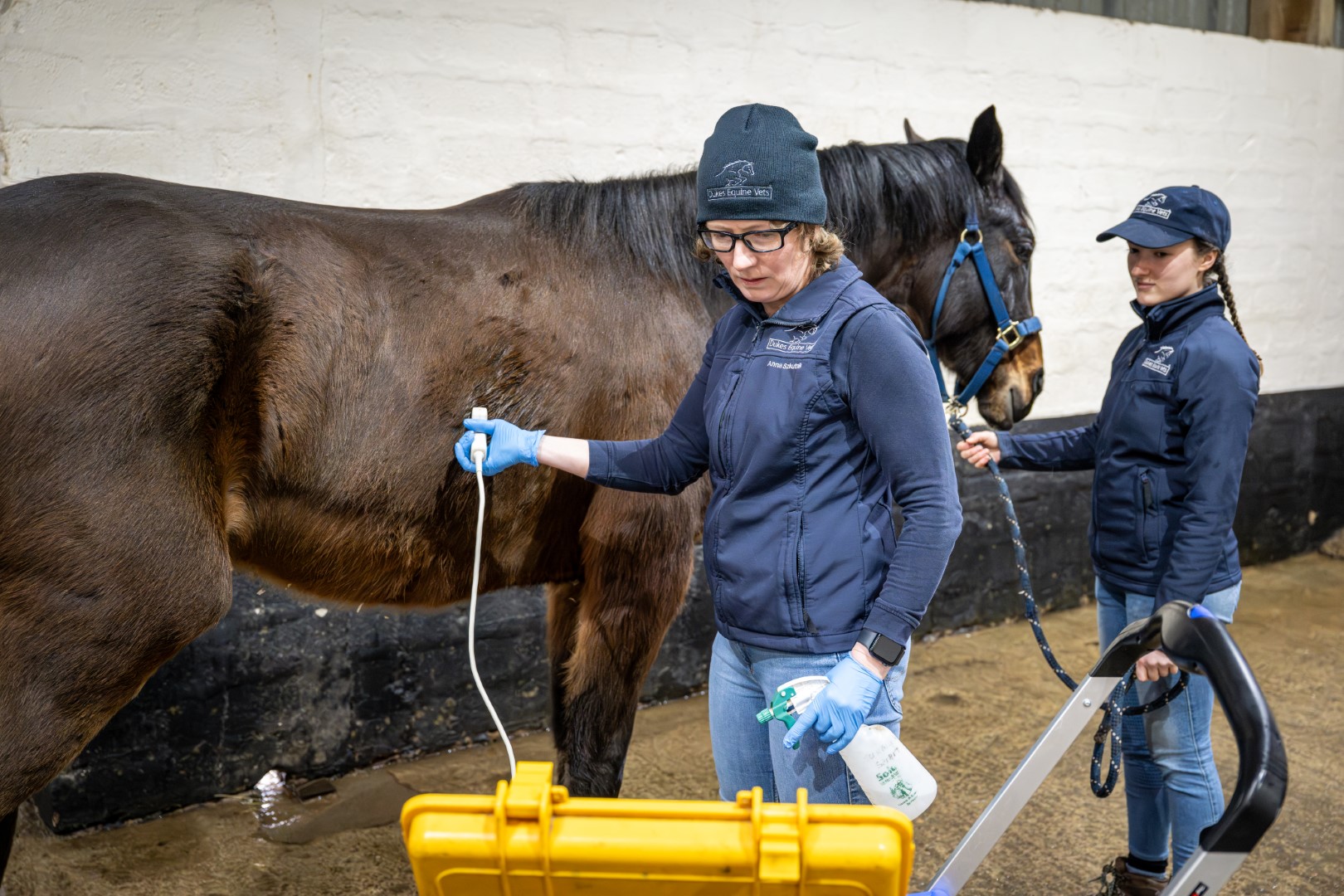
If we are called out to a colic our vets willexamine your horse carefully, to diagnose as accurately as possible the reason for the colic, using a combination of techniques which may include :
- Clinical examination, including assessment of circulatory status and gut sounds.
- Rectal examination to palpate internally.
- Stomach tube and drench.
- Abdominal ultrasound scan.
- Abdominocentesis (belly tap) in occasional cases.
Some colics can be managed medically with a combination of pain relief drugs, fluids, hand walking, lunging and regular checks depending on the clinical findings. In other cases we may offer referral for further investigation and possibly colic surgery.
Colic is not entirely preventable but we can take some steps to reduce the risk :
- Ensure worming control is up-to-date.
- Avoid sudden diet change.
- Ensure constant access to water.
- Regular dental care.
- Turnout for at least 4 hours per day if possible.
Worming
These small intestinal parasites can cause real problems for horses. Remember that youngstock in particular are at direct risk of disease and even death from uncontrolled worm burdens. Adult horses have more resilience, but even small worm burdens increase the risk of colic.
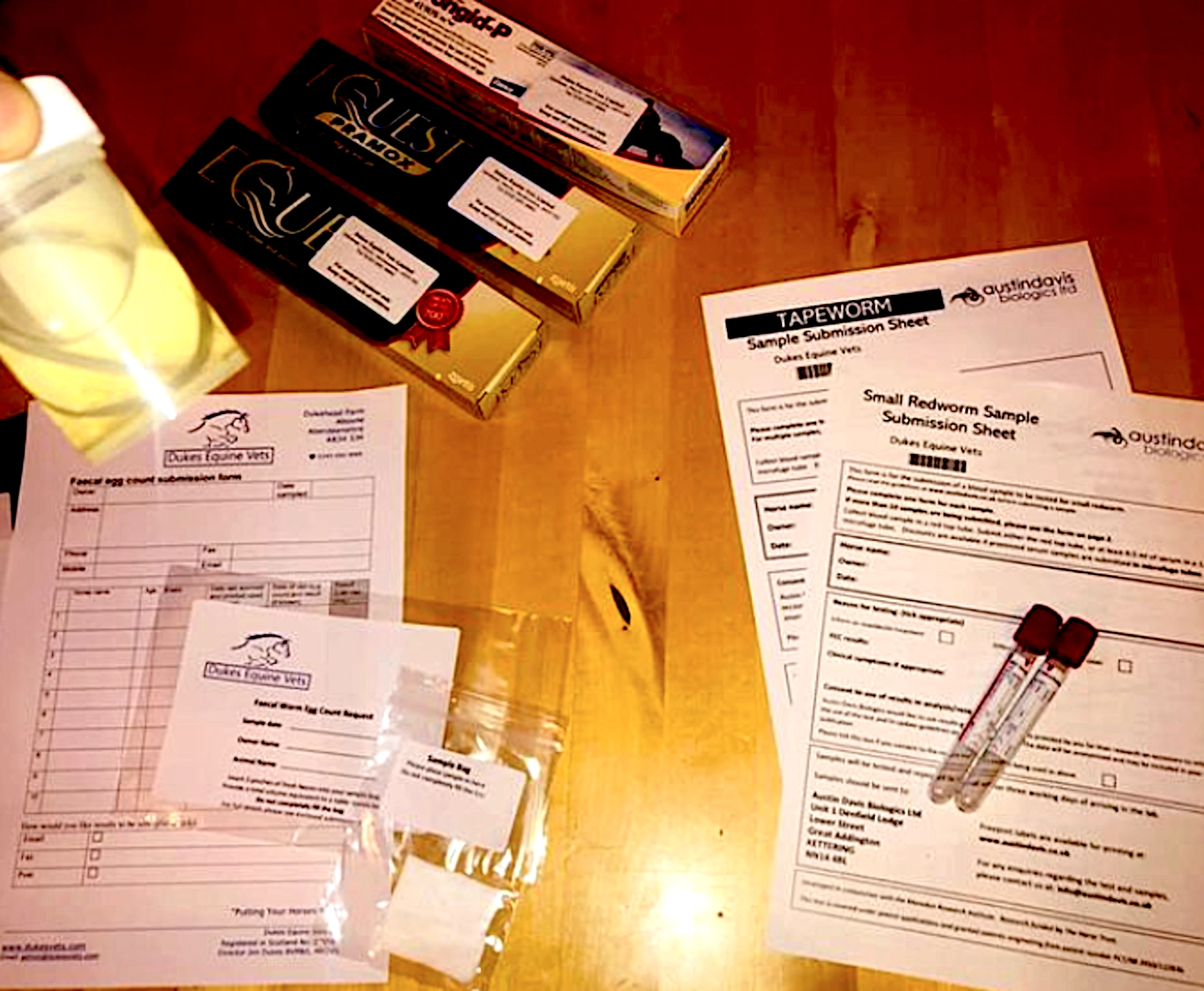
We should all be aware that not all wormers are effective and resistance to wormers is becoming a significant problem around the world. An effective control program relies on monitoring as well as targeted treatment to be effective.
There are two main types of worms, round worms and tapeworms, which need different strategies to manage them. Faecal egg counts are a very good way to monitor your horse but must be used as part of a worm control strategy. See our advice sheet on worming here.
You can order faecal egg count kits from the practice. If clients want more detailed advice then please get in touch.
Vaccinations
Not all vaccines are the same, even those for the same disease made by different manufacturers can vary widely in safety and efficacy. We constantly monitor available vaccines and try and use the safest and most effective vaccines available for different diseases.
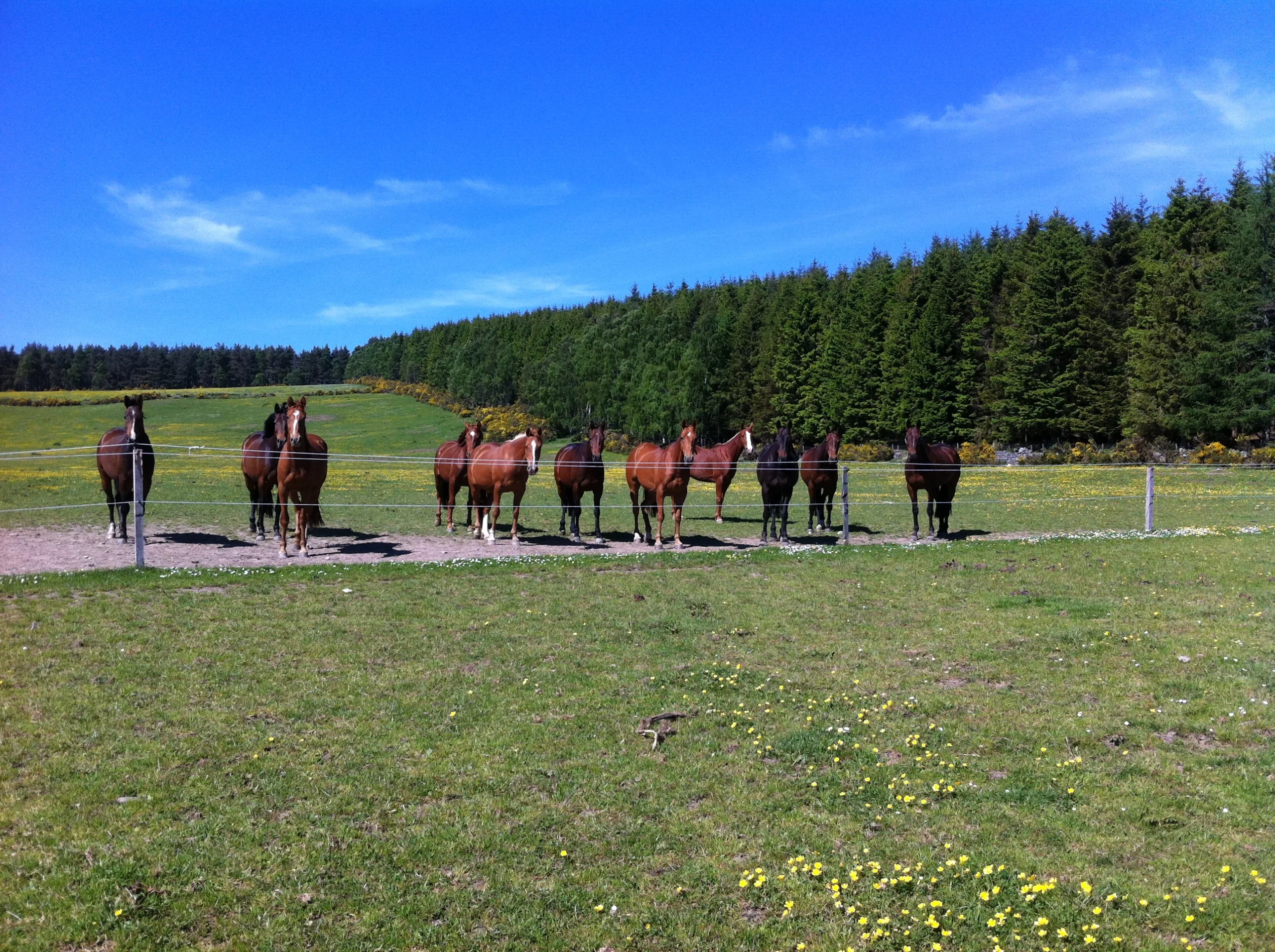
There are four main diseases horses can be vaccinated against in the UK:
- Tetanus – a bacterial disease caused by Clostridium tetani. Usual route of infection is via contamination of a wound. Vaccination is very effective but if an unvaccinated horse gets tetanus the result is often fatal.
- Equine Herpes Virus (EHV 1 and 4) – a viral infection very widespread amongst the equine population. Mostly causes mild respiratory infections but occasionally is linked to a severe paralytic form of the disease and also abortion in late term pregnant mares. Although a vaccine is available the ability to prevent abortions and the paralytic form of the disease is at best limited. Disease can possibly be better prevented by good management and biosecurity.
- Strangles – a bacterial disease cause by Streptococcus equi. The disease is rarely fatal but is very easily spread in an infected group of horses which can become very sick, plus there can be huge economic consequences for infected premises and inconvenience for owners. Up until now biosecurity has been the best defence but there has been a new vaccine (Strangvac) launched in the UK which looks very promising both at preventing disease and possibly using on an infected yard to control the spread of disease. We expect this vaccine to become much more important in future and if you want further information please speak to one of our vets.
- Influenza – a viral disease caused by influenza virus. There are different strains circulation but most cases worldwide are currently subtypes of Florida clade 1. There are three vaccines available in the UK. The vaccine we currently use is Equilis prequenza which has proved very effective at protecting horses from disease. In unvaccinated horses the infection spreads very quickly. Although fatalities are very rare, unvaccinated horses can be quite sick and in some cases affected for months afterwards. Influenza is endemic in the UK horse population and there are very strict rules on vaccination for various competitive disciplines. Competition rules have changed recently and unfortunately different competition authorities have very different flu vaccination schedules. We always recommend you check before competing but for a chart with our understanding of the different society rules click here.
Insurance
Although it is possible to work out your costs for routine veterinary care of horses, it is much harder to predict the likelihood of getting a severe injury or illness and what the costs of treating that might be. We do not insist any horse is insured but it may give you peace of mind to know that if you horse sustains a significant injury you have a reasonable budget for treatment.
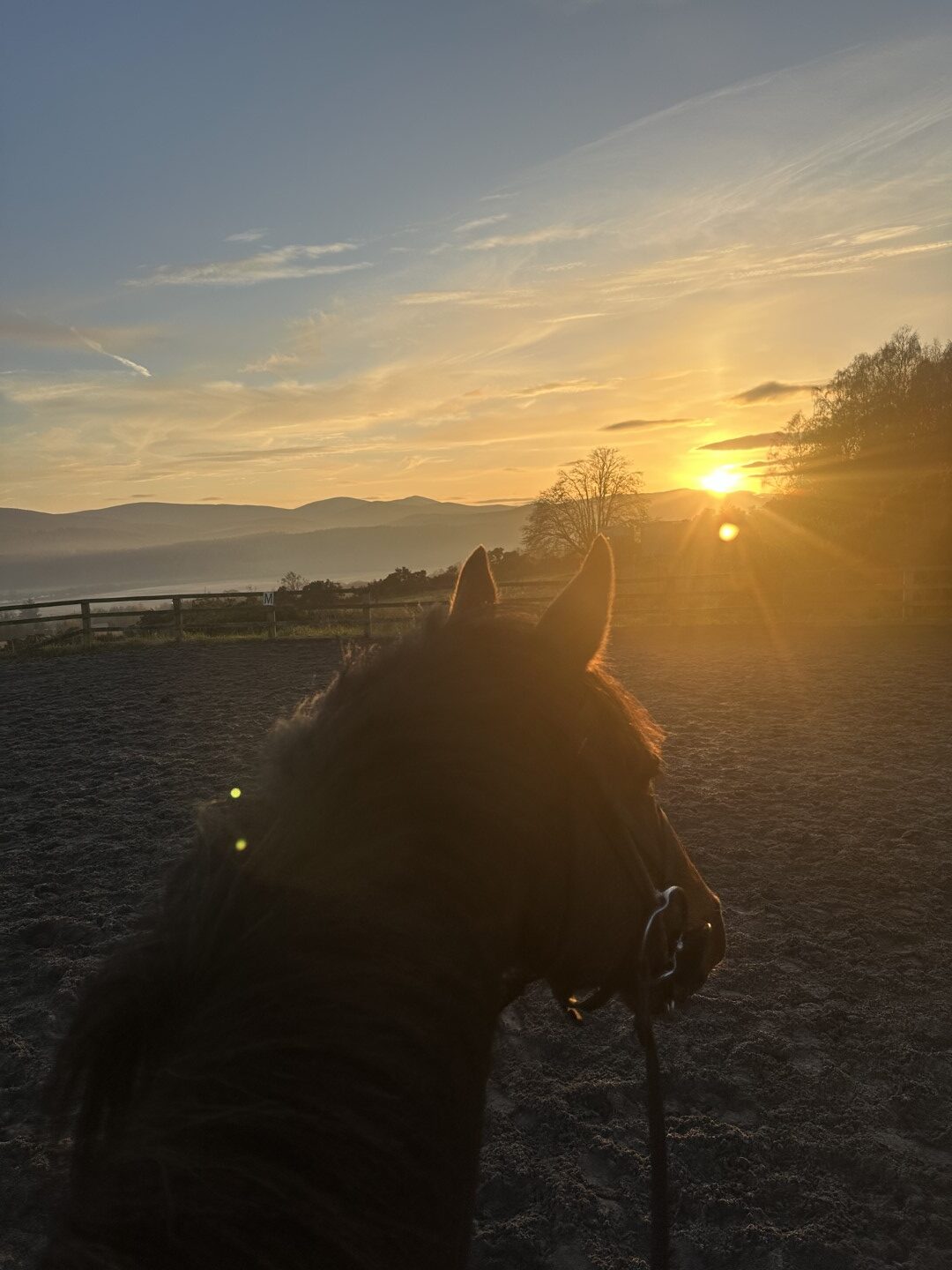
There are three main types of cover for horses; mortality only, vets fees and loss of use. Make sure you know what sort of insurance you want and choose the right policy for your circumstances. You may also want to look at third party liability cover.
When looking at the level of cover for vets fees it used to be that around £5000 would cover all but the most complex problems, but with increases in veterinary fees, even this may be insufficient to treat many conditions now. We do not recommend specific insurance companies but the levels of service on offer do differ widely. We recommend that you choose your insurer carefully, make sure you have an adequate level of cover and choose a reputable company.
Prescriptions
As vets we generally carry and supply medicines in our cars for most emergency situations. However especially if your horse is on long term medication you may want a prescription to buy from a third party. Presriptions are available from this practice but please check with us first as we try to keep the prices of our drugs reasonable. However, there are some drugs which are available on prescription cheaper than we, as a small independent practice, can buy from our wholesaler. In these cases we can supply a prescription on request.
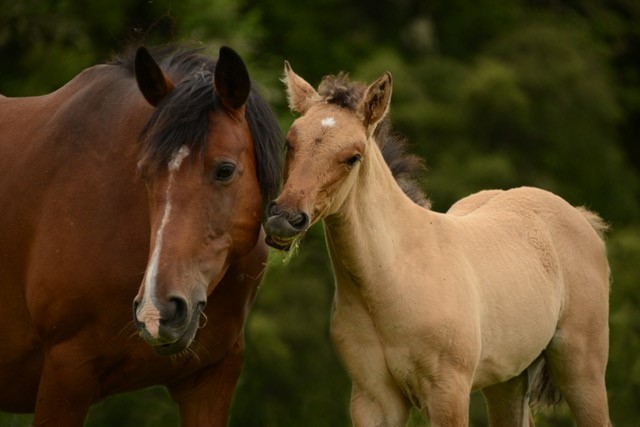
Euthanasia
One of the most difficult things we, as vets, and you, as owners, have to face is putting down a horse. There are times when euthanasia is the only reasonable option for your horse. There are also times when, although a horse may not be fit to be ridden, there may be other options is specific circumstances such as use as a companion, possibly for some otherwise young, fit and healthy mares to use as embryo transfer recipients or even retiral to the equine blood bank where, from the feedback we get, the horses are kept in 5* accommodation and used as blood donors to make diagnostic plates for the medical industry. In many cases though it is very difficult to decide when a horse should or should not be put down. It is very much a personal decision and we will support you with that and, when asked, may help to guide you to the right decision. We always euthanase horses with injection and will always do our best to carry out the procedure in a professional but definitely also compassionate way

How-to videos
Coming soon!
